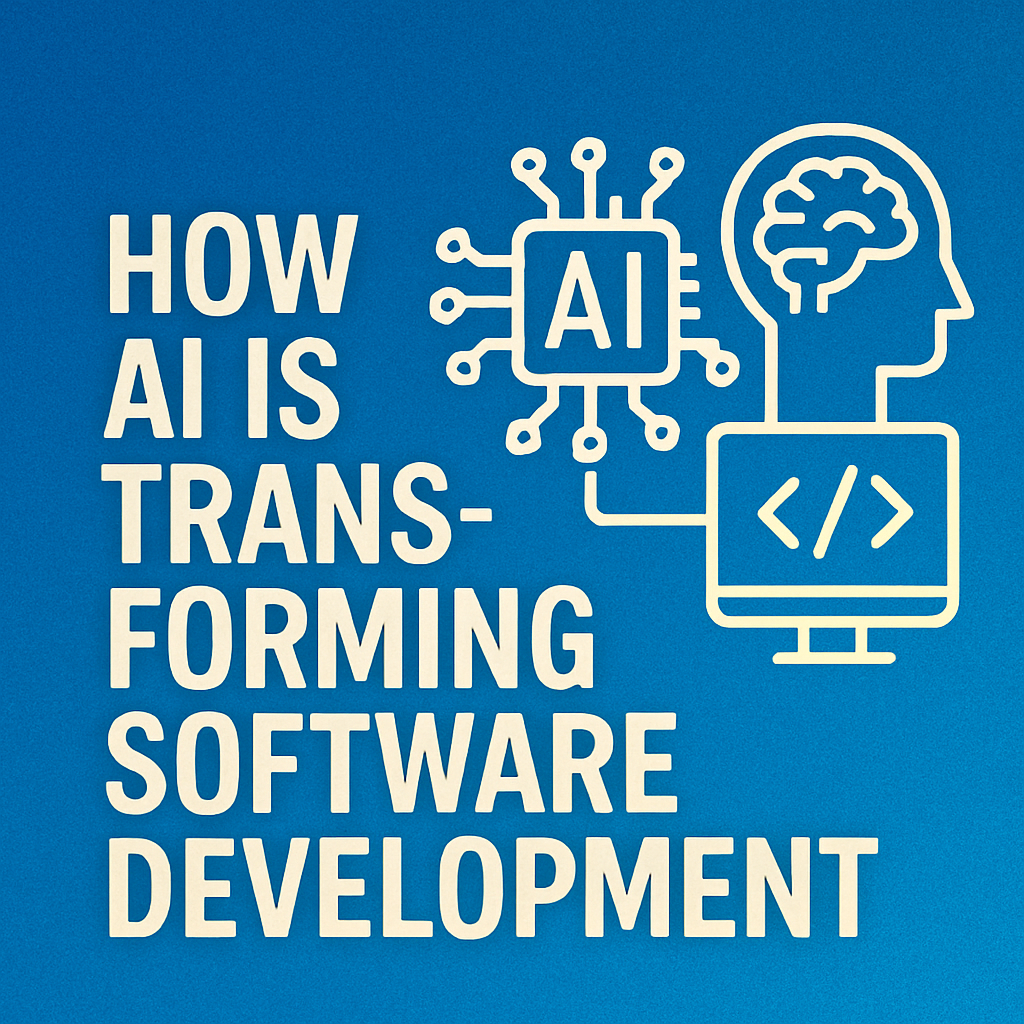Software Development with AI: Revolutionizing the Future of Programming
Artificial Intelligence (AI) is transforming the landscape of software development at an unprecedented pace. By integrating AI into the development process, companies are not only increasing efficiency and accuracy but also enabling innovations that were previously unimaginable. Whether it’s automating code generation, enhancing testing capabilities, or personalizing user experiences, AI is becoming an essential component of modern software engineering. This blog explores how AI is revolutionizing software development and what the future holds for developers and businesses alike.
Automated Code Generation and Assistance
AI-powered tools like GitHub Copilot and Tabnine are helping developers write code faster and with fewer errors. These tools use machine learning models trained on vast repositories of code to predict and suggest code snippets in real time. This significantly reduces development time and allows programmers to focus on solving complex problems rather than writing boilerplate code.
Enhanced Testing and Debugging
Testing is a critical part of the software development lifecycle. AI can automate the creation of test cases, detect bugs earlier, and even predict potential vulnerabilities before they become major issues. Tools that leverage AI can analyze user behavior, historical bugs, and code changes to prioritize testing efforts more effectively.
Improving Software Quality with Predictive Analytics
AI enables predictive analytics by using data from past projects to forecast potential risks, delivery delays, and performance issues. This helps development teams make informed decisions, optimize resource allocation, and enhance overall software quality.
AI in DevOps and Continuous Integration
In DevOps, AI contributes to smarter workflows through automated monitoring, alerting, and infrastructure management. AI-powered tools can detect anomalies, suggest corrective actions, and optimize CI/CD pipelines to reduce downtime and accelerate deployments. This leads to more stable and resilient applications.
Natural Language Processing for Documentation and Communication
Writing technical documentation and managing communication across development teams can be time-consuming. AI tools utilizing Natural Language Processing (NLP) can generate and summarize documentation, translate requirements into code, and bridge the communication gap between technical and non-technical stakeholders.
Challenges and Ethical Considerations
Despite its benefits, integrating AI in software development poses challenges. Issues such as data privacy, algorithmic bias, and transparency must be addressed. Developers need to ensure that AI models are ethically trained and that their use doesn’t compromise the integrity or security of applications.
Conclusion
AI is not just a tool—it’s becoming a co-developer. As AI continues to evolve, its role in software development will only expand, driving efficiency, innovation, and agility. Developers and organizations that embrace this shift will gain a significant competitive edge. The future of programming is collaborative, intelligent, and powered by AI.
Embracing AI in software development today prepares you for the smart solutions of tomorrow.



